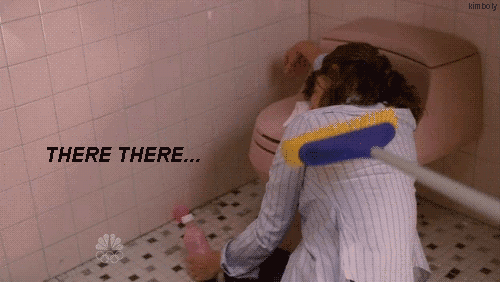What is NaNoWriMo, you ask?
It stands for National Novel Writing Month, which is a bit of a misnomer because it's worldwide, and I'm going to abbreviate it as NaNo from now on because it's a whole lotta acronym.
The idea of NaNo is to write 50,000 words--or a short novel, basically--in one month. It doesn't have to be "good" or in final draft form; you're just supposed to write and get the words down. That's a lot of writing, even for those of us who try to meet some kind of a word count quota per day already, which, I should tell you, I do not.
It exists as a right (or write?) of passage for writers in all genres, and as a form of torture we inflict upon ourselves.
My project for the month will be a re-write of a novel-length piece I've already written, but, well, it needs to be re-done. I'll just leave it at that. It's a sci-fi romance, and I'm really excited about it. I don't really have much of an outline, but I have a lot of the plot worked out, so we'll see how it plays out once it's out of my head.
You're probably wondering why anyone would want to do NaNo. After all, it's a ton of work, and certainly isn't going to stop my hermit status from getting worse. But, if I make the 50K goal, I'll be so freakin' excited.
 |
| Just like this. |
But I have a feeling that, by the end of the month, I'll end up looking more like this:





